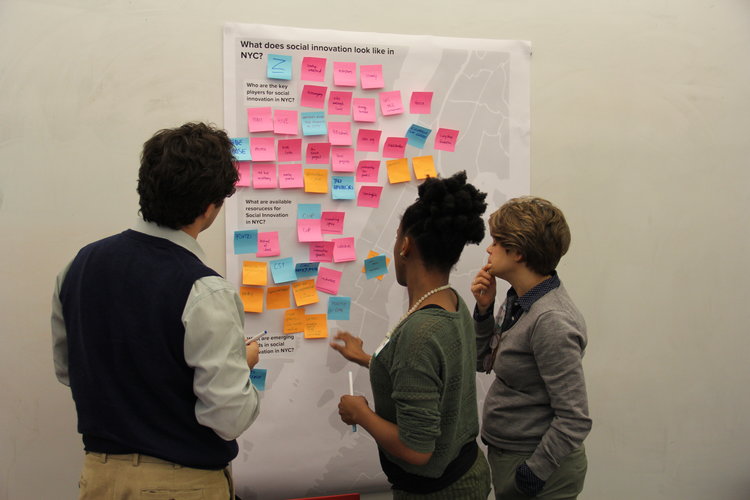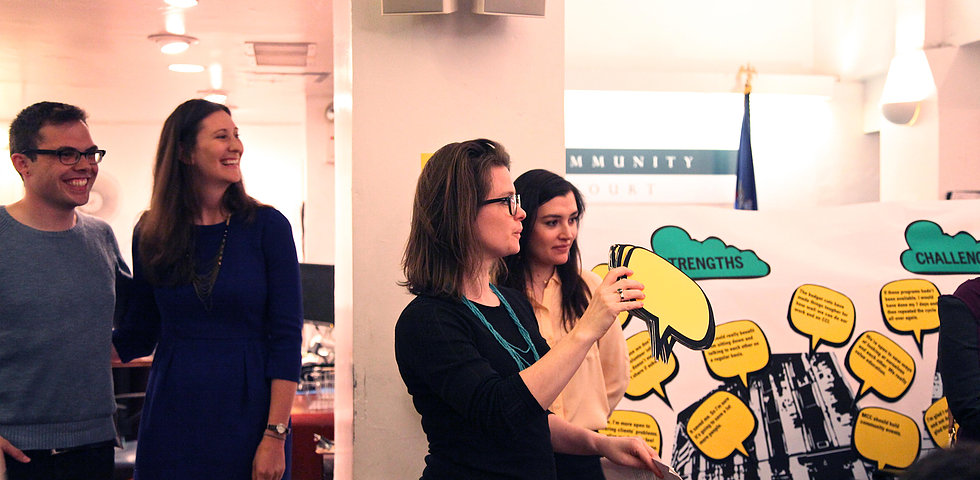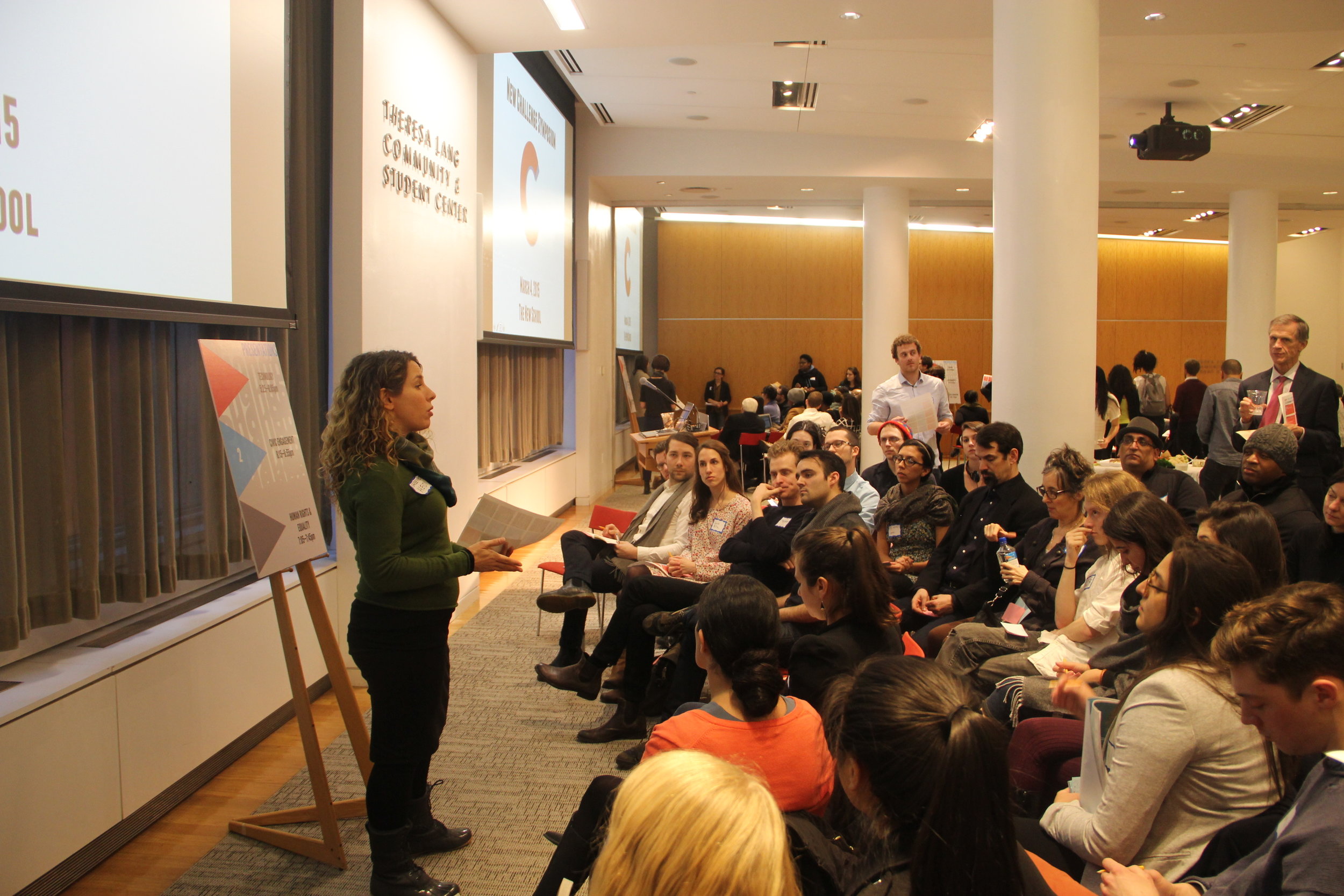Across the projects profiled on this site, there are diverse approaches to collaborative, project-based, socially-engaged learning. These models vary across diverse dimensions including, among others: the relationship between external partners, faculty, students, and communities; lengths of the partnership; class structure, pedagogy, and content; student outputs; intended learning outcomes and partner outcomes.

A Range of Pedagogy
Pedagogy varies across the projects in diverse ways, for example:
- Students work on projects directly with members of partner communities under the direction of faculty and partners.
- Students work with a partner organization as a “client”, producing agreed upon deliverables (usually related to improving organizational performance).
- Students work in a community location associated with a partner organization and create site-specific projects, but neither produce work “for” nor “with” the partner.
- Students extend the socially engaged projects that they began in courses and, sometimes with financial support from the university, work independently to advance and more deeply embed the work in communities.

A Range of Intended Learning Outcomes
Intended learning outcomes vary across the projects, but include, among others:
- Thinking innovatively, critically and creatively about how to address social issues
- Using emerging theories of social innovation and social justice to understand how change happens within organizations, communities, and systems
- Understanding and respecting the needs, perspectives, and contributions of relevant communities
- Using interdisciplinary methods and frameworks for creating change, including those that emphasize co-creating solutions to identified needs with communities
- Collaborating effectively with diverse people from different backgrounds
- Building confidence, agency and leadership capacity to address complex social issues
- Instilling a commitment to civic participation in one’s life
A Range of Intended Partner and Community Outcomes
Intended outcomes for partner organizations and communities from engagement with The New School include the development of, for example:
- Creative tools and strategies that enhance partner organizations programmatically and operationally
- New community-based capacities
- New “spaces” to elicit voices and concerns not normally heard and to support dialogue among diverse community members
- Changes in policy, programs and agendas
Author: Prof. Michele Kahane, Professor of Practice, Milano School of International Affairs, Management, and Urban Policy; Associate Dean, Schools of Public Engagement; Faculty Director, The New School Collaboratory

